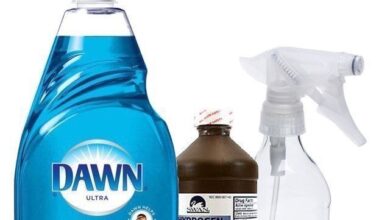Been wondering the answer to this!

We’ve all encountered that moment of pantry panic: a can with a noticeable dent. The question lingers: is it safe to consume, or should it be tossed? While it may seem wasteful to discard perfectly good food, safety should always be the top priority. This article delves into the potential dangers associated with dented cans, providing insights to help you make informed decisions.
ADVERTISEMENT
Understanding the Perils of Dented Cans
A dent in a can can compromise its structural integrity, potentially leading to food contamination. The primary concern is whether the dent has compromised the can’s airtight seal. If the seal is breached, harmful bacteria like Clostridium botulinum can infiltrate the contents, posing a serious health risk.
ADVERTISEMENT
Factors Influencing the Risk
Not all dents are created equal. The severity and location of the dent play crucial roles in determining the level of risk. Dents on the seams or near the lid are more alarming than those on the can’s body. Additionally, deep or sharp dents are more likely to compromise the seal than shallow ones.
ADVERTISEMENT
How Dents Impact Food Safety
Dents can weaken the can’s structure, potentially breaking the airtight seal that safeguards the contents from spoilage. Once the seal is compromised, air and bacteria can enter, leading to the growth of harmful microorganisms. This is why it’s imperative to assess whether the dent has affected the can’s seal.
Signs of Spoilage in Canned Food
Before consuming canned food, it’s essential to check for signs of spoilage. These include bulging lids, rust, leaks, or unusual odors upon opening. If the contents appear or smell off, it’s advisable to discard the can immediately.
Health Risks Associated with Consuming Spoiled Canned Food
Consuming spoiled canned food can lead to foodborne illnesses, ranging from mild gastrointestinal discomfort to severe conditions like botulism. Botulism is a rare but potentially fatal illness caused by toxins produced by Clostridium botulinum bacteria, which can thrive in improperly sealed cans.
Guidance from Food Safety Experts
Food safety authorities like the USDA and FDA recommend discarding cans with deep dents, especially those affecting the seams or lid. They strongly advise against consuming food from cans that exhibit signs of spoilage or have compromised seals to prevent the risk of foodborne illnesses.
Steps to Safely Handle and Inspect Dented Cans
When you encounter a dented can, inspect it thoroughly. Check for any signs of leaks, rust, or bulging. If the dent is minor and not on a seam, the food might still be safe. However, if you’re uncertain, it’s prudent to discard the can. Always wash your hands after handling dented cans to avoid contamination.
Alternative Approaches to Dented Cans
If you decide not to consume a dented can, consider donating it to a food bank if it’s still within the expiration date and appears safe. Alternatively, you can recycle the can. To prevent future dilemmas, regularly rotate your pantry stock and store cans properly to minimize the risk of dents.
While it may be tempting to use a dented can, especially if it’s the last one in the pantry, safety should always take precedence. By understanding the risks and knowing what to look for, you can make informed decisions. When in doubt, it’s better to err on the side of caution and discard the can to protect your health.




